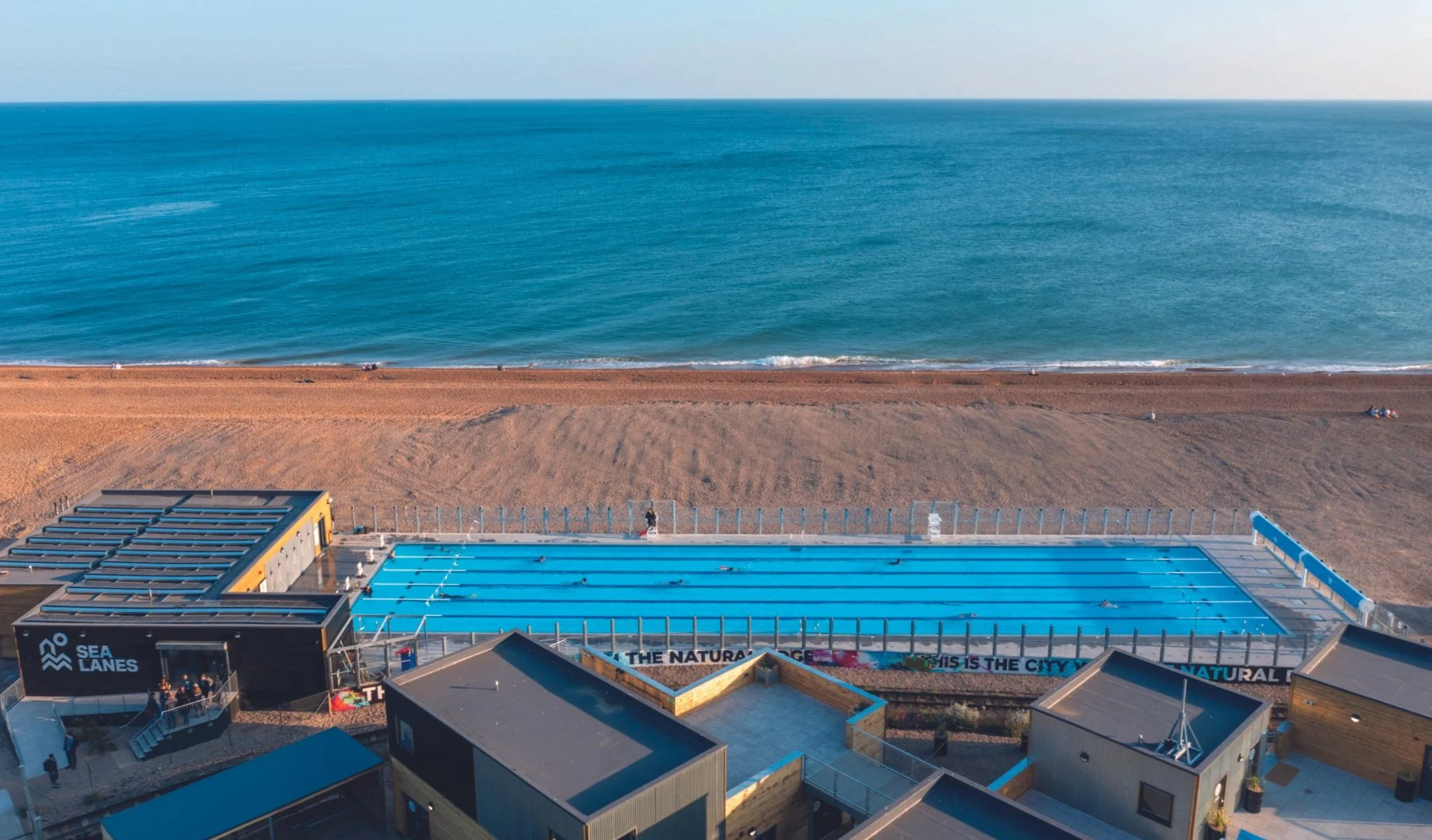10 Tips for Pool Swimming (if you have Dry | Sensitive Skin)
I try to swim outdoors when I can and there are some great lidos around the UK that are open all year round. The Outdoor Swimming Society have a list, though it doesn’t include one of the latest offerings, Sea Lanes, here in Brighton.
Indoors or out, Pool Swimming is a great activity for overall fitness and wellbeing, but it can also be challenging for people with dry, sensitive skin and those of us who suffer with eczema. Chlorine and other chemicals in pool water can exacerbate skin issues if you don’t take precautions.
These are my top 10 tips to help manage your skin if you like to swim. Many of them are good for you and the pool. I’ve added links to the manufacturers of my preferred brands (not sponsored) but there are many others.
I’d love to hear about your recommendations in the comments below.
1. Choose the right pool: The right pool is probably the one that’s closest, but if you have a choice, look for a pool with a saltwater system instead of traditional chlorine. Here’s a list of outdoor lidos and coastal tidal pools in the UK.
You can also check if a public pool in the UK is accredited by the Pool Water Treatment Advisory Group (PWTAG). They at least set a researched standard. It’s not a big list but I’m told it’s growing.
2. Choose the right swimwear: Opt for swimwear made from soft, non-irritating materials like lycra or silicone, and always rinse it thoroughly after use to remove any residual pool chemicals.
3. Wear a swim hat and goggles: Wearing a swim cap can protect your hair and scalp from direct contact with pool water. Goggles prevent chlorine water from getting into your eyes, which are sensitive.
4. Apply a protective barrier: Consider using a gentle, hypoallergenic skin barrier cream or lotion like Egopharm before swimming, but if the pool doesn’t allow it …
Shower before you get in: It’s better for you and better for the pool. Rinsing your body and hair (particularly coloured hair) with fresh water before entering swimming helps to hydrate your skin and create a protective layer that reduces chlorine absorption.
5. Limit your time in the pool: If you’re swimming in a warm chlorinated pool, try to minimise the time you spend in the water. Shorter sessions reduce the exposure to chloramines and other irritants.
6. Rinse immediately after swimming: Before drying off, take a quick shower using a shower emollient like Dermol to remove any chlorine residue.
7. Moisturize after you shower: Liberally apply a moisturising cream like Aveeno (my favourite). This helps lock in moisture and soothe your skin. There are also specially formulated skincare products designed for swimmers. A local pick (based in Brighton) for your face is Balmonds. I’ve just started using their Daily Moisturising Cream. It smells herbal, but feels great.
8. Drink: Take a water bottle (and use it!) to keep you hydrated, particularly if you’re in a heated pool and you’re training.
9. Sunscreen: This may not be needed in the winter but soaking up the sunshine after a summer swim is a joy but remember to apply sunscreen to keep your skin protected. My skin friendly favourite is Altruist.
10. Dress comfortably: No surprise here but I love to put on towelling after a swim. It’s my ‘go to’ on sensitive skin days anyway but after a swim it’s soft, absorbent and oh, so cosy. None better than SoEnglish!
Everyone's skin is different, so it may take some trial and error to find the best combination of tips and products that work for you. But take the plunge … it’s worth it.




